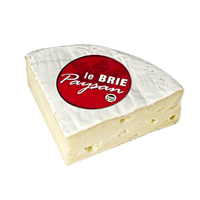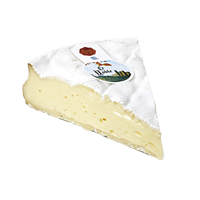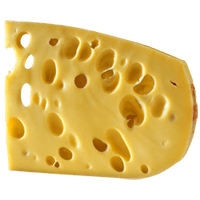Blue cheese nutrition: calories, carbs, GI, protein, fiber, fats
Cheese, blue
*all the values are displayed for the amount of 100 grams
Top nutrition facts for Blue cheese
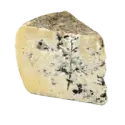
| Calories ⓘ Calories for selected serving | 353 kcal |
| Net Carbs ⓘ Net Carbs = Total Carbohydrates – Fiber – Sugar Alcohols | 2 grams |
| Default serving size ⓘ Serving sizes are mostly taken from FDA's Reference Amounts Customarily Consumed (RACCs) | 1 oz (28.35 grams) |
| Acidity (Based on PRAL) ⓘ PRAL (Potential renal acid load) is calculated using a formula. On the PRAL scale the higher the positive value, the more is the acidifying effect on the body. The lower the negative value, the higher the alkalinity of the food. 0 is neutral. | 12 (acidic) |
| Oxalates ⓘ Animal products do not contain oxalate. | 0 mg |
Sodium ⓘHigher in Sodium content than 96% of foods
Saturated fat ⓘHigher in Saturated fat content than 94% of foods
Calcium ⓘHigher in Calcium content than 94% of foods
Fats ⓘHigher in Fats content than 93% of foods
Phosphorus ⓘHigher in Phosphorus content than 88% of foods
Blue cheese calories (kcal)
| Calories for different serving sizes of blue cheese | Calories | Weight |
|---|---|---|
| Calories in 100 grams | 353 | |
| Calories in 1 cubic inch | 60 | 17 g |
| Calories in 1 oz | 100 | 28.35 g |
| Calories in 1 cup, crumbled, not packed | 477 | 135 g |
Extra Nutrition facts for Blue cheese
| Protein per 100 calories ⓘ Shows how many grams of protein you get from 100 calories of this food, calculated as (protein in g ÷ calories) × 100. | 6.1 g |
| Calories per 10 g protein ⓘ Shows how many calories you need to eat from this food to get 10 g of protein, calculated as (calories ÷ protein in g) × 10. | 165 kcal |
Mineral coverage chart
Mineral chart - relative view
Vitamin coverage chart
Vitamin A:
594µg of 900µg
66%
Vitamin E:
0.75mg of 15mg
5%
Vitamin D:
1.5µg of 20µg
7.5%
Vitamin C:
0mg of 90mg
0%
Vitamin B1:
0.09mg of 1mg
7.3%
Vitamin B2:
1.1mg of 1mg
88%
Vitamin B3:
3mg of 16mg
19%
Vitamin B5:
5.2mg of 5mg
104%
Vitamin B6:
0.5mg of 1mg
38%
Folate:
108µg of 400µg
27%
Vitamin B12:
3.7µg of 2µg
153%
Vitamin K:
7.2µg of 120µg
6%
Vitamin chart - relative view
Macronutrients chart
Protein:
Daily Value: 43%
21.4 g of 50 g
21.4 g (43% of DV )
Fats:
Daily Value: 44%
28.7 g of 65 g
28.7 g (44% of DV )
Carbs:
Daily Value: 1%
2.3 g of 300 g
2.3 g (1% of DV )
Water:
Daily Value: 2%
42.4 g of 2,000 g
42.4 g (2% of DV )
Other:
5.1 g
5.1 g
Protein quality breakdown
Tryptophan:
936mg of 280mg
334%
Threonine:
2355mg of 1,050mg
224%
Isoleucine:
3372mg of 1,400mg
241%
Leucine:
5757mg of 2,730mg
211%
Lysine:
5556mg of 2,100mg
265%
Methionine:
1752mg of 1,050mg
167%
Phenylalanine:
3261mg of 1,750mg
186%
Valine:
4668mg of 1,820mg
256%
Histidine:
2274mg of 700mg
325%
Fat type information
Saturated fat:
19 g
Monounsaturated fat:
7.8 g
Polyunsaturated fat:
0.8 g
Fiber content ratio for Blue cheese
Sugar:
0.5 g
Fiber:
0 g
Other:
1.8 g
All nutrients for Blue cheese per 100g
| Nutrient | Value | DV% | In TOP % of foods | Comparison |
| Vitamin A | 198µg | 22% | 25% | |
| Calories | 353kcal | 18% | 23% |
7.5 times more than Orange
|
| Protein per 100 calories | 6.1g | N/A | 39% | |
| Calories per 10 g protein | 165kcal | N/A | 43% | |
| Protein | 21g | 51% | 21% |
7.6 times more than Broccoli
|
| Fats | 29g | 44% | 7% |
1.2 times less than Cheese
|
| Vitamin C | 0mg | 0% | 100% |
N/A
|
| Carbs | 2.3g | 1% | 67% |
12 times less than Rice
|
| Net carbs | 2.3g | N/A | 65% |
23.1 times less than Chocolate
|
| Cholesterol | 75mg | 25% | 24% |
5 times less than Egg
|
| Vitamin D | 0.5µg | 5% | 48% |
4.4 times less than Egg
|
| Magnesium | 23mg | 5% | 50% |
6.1 times less than Almonds
|
| Calcium | 528mg | 53% | 6% |
4.2 times more than Milk
|
| Potassium | 256mg | 8% | 47% |
1.7 times more than Cucumber
|
| Iron | 0.31mg | 4% | 84% |
8.4 times less than Beef broiled
|
| Sugar | 0.5g | N/A | 71% |
17.9 times less than Coca-Cola
|
| Fiber | 0g | 0% | 100% |
N/A
|
| Copper | 0.04mg | 4% | 85% |
3.6 times less than Shiitake
|
| Zinc | 2.7mg | 24% | 33% |
2.4 times less than Beef broiled
|
| Phosphorus | 387mg | 55% | 12% |
2.1 times more than Chicken meat
|
| Sodium | 1146mg | 50% | 4% |
2.3 times more than White bread
|
| Vitamin E | 0.25mg | 2% | 71% |
5.8 times less than Kiwi
|
| Manganese | 0.01mg | 0% | 93% | |
| Selenium | 15µg | 26% | 54% | |
| Vitamin B1 | 0.03mg | 2% | 83% |
9.2 times less than Pea raw
|
| Vitamin B2 | 0.38mg | 29% | 19% |
2.9 times more than Avocado
|
| Vitamin B3 | 1mg | 6% | 68% |
9.4 times less than Turkey meat
|
| Vitamin B5 | 1.7mg | 35% | 28% |
1.5 times more than Sunflower seeds
|
| Vitamin B6 | 0.17mg | 13% | 53% |
1.4 times more than Oats
|
| Vitamin B12 | 1.2µg | 51% | 39% |
1.7 times more than Pork
|
| Vitamin K | 2.4µg | 2% | 63% |
42.3 times less than Broccoli
|
| Folate | 36µg | 9% | 39% |
1.7 times less than Brussels sprouts
|
| Choline | 15mg | 3% | 80% | |
| Saturated fat | 19g | 93% | 6% |
3.2 times more than Beef broiled
|
| Monounsaturated fat | 7.8g | N/A | 21% |
1.3 times less than Avocado
|
| Polyunsaturated fat | 0.8g | N/A | 51% |
59 times less than Walnut
|
| Tryptophan | 0.31mg | 0% | 48% |
Equal to Chicken meat
|
| Threonine | 0.79mg | 0% | 65% |
1.1 times more than Beef broiled
|
| Isoleucine | 1.1mg | 0% | 54% |
1.2 times more than Salmon raw
|
| Leucine | 1.9mg | 0% | 55% |
1.3 times less than Tuna Bluefin
|
| Lysine | 1.9mg | 0% | 59% |
4.1 times more than Tofu
|
| Methionine | 0.58mg | 0% | 59% |
6.1 times more than Quinoa
|
| Phenylalanine | 1.1mg | 0% | 51% |
1.6 times more than Egg
|
| Valine | 1.6mg | 0% | 44% |
1.3 times less than Soybean raw
|
| Histidine | 0.76mg | 0% | 56% |
Equal to Turkey meat
|
| Caffeine | 0mg | 0% | 100% | |
| Omega-3 - EPA | 0g | N/A | 100% |
N/A
|
| Omega-3 - DHA | 0g | N/A | 100% |
N/A
|
| Omega-3 - DPA | 0g | N/A | 100% |
N/A
|
Check out similar food or compare with current
NUTRITION FACTS LABEL
Nutrition Facts
___servings per container
Serving Size ______________
Serving Size ______________
Amount Per 100g
Calories 353
% Daily Value*
44%
Total Fat
29g
85%
Saturated Fat 19g
0
Trans Fat
0g
25%
Cholesterol 75mg
50%
Sodium 1146mg
0.78%
Total Carbohydrate
2.3g
0
Dietary Fiber
0g
Total Sugars 0g
Includes ? g Added Sugars
Protein
21g
Vitamin D
21mcg
2.6%
Calcium
528mg
53%
Iron
0.31mg
3.9%
Potassium
256mg
7.5%
*
The % Daily Value (DV) tells you how much a nutrient in a serving of food contributes to a daily diet. 2,000 calories a day is used for general nutrition advice.
Health checks
ⓘ
Dietary cholesterol is not associated with an increased risk of coronary heart disease in healthy individuals. However, dietary cholesterol is common in foods that are high in harmful saturated fats.
Source
Low in Cholesterol
ⓘ
Trans fat consumption increases the risk of cardiovascular disease and mortality by negatively affecting blood lipid levels.
Source
No Trans Fats
ⓘ
Saturated fat intake can raise total cholesterol and LDL (low-density lipoprotein) levels, leading to an increased risk of atherosclerosis. Dietary guidelines recommend limiting saturated fats to under 10% of calories a day.
Source
Low in Saturated Fats
ⓘ
While the consumption of moderate amounts of added sugars is not detrimental to health, an excessive intake can increase the risk of obesity, and therefore, diabetes.
Source
Low in Sugars
Blue cheese nutrition infographic
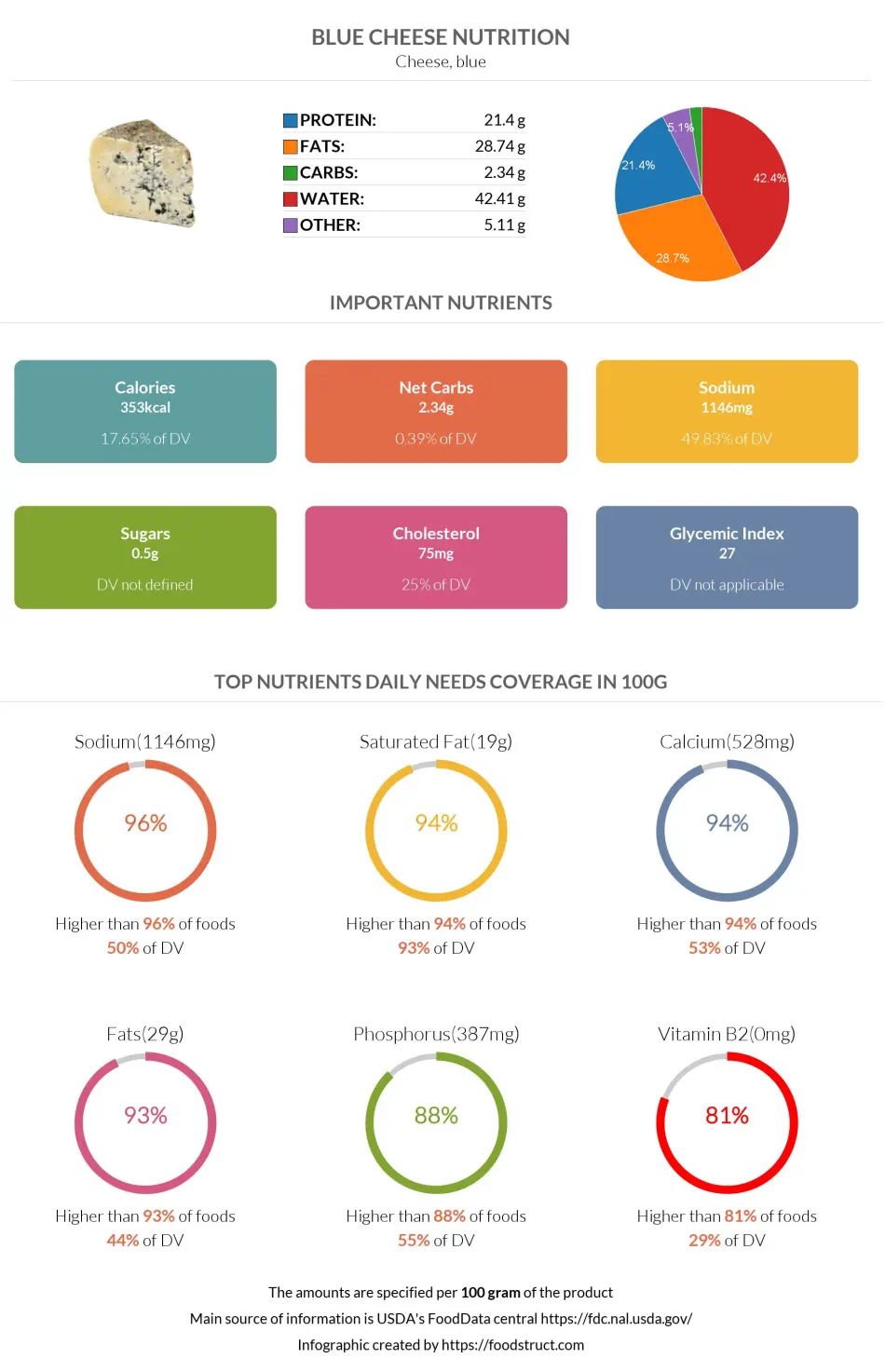
Infographic link
References
All the values for which the sources are not specified explicitly are taken from FDA’s Food Central. The exact link to the food presented on this page can be found below.
